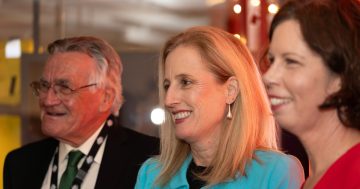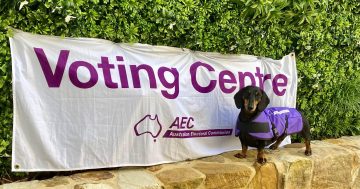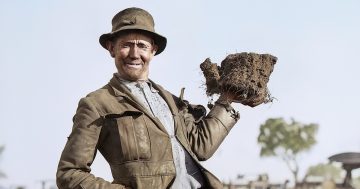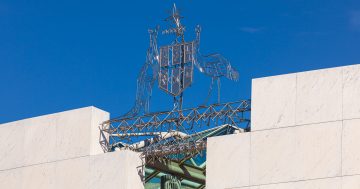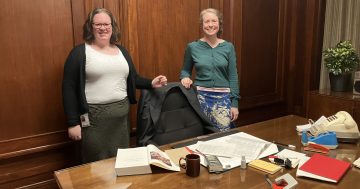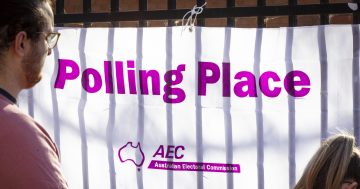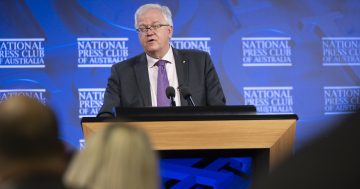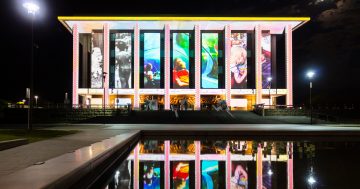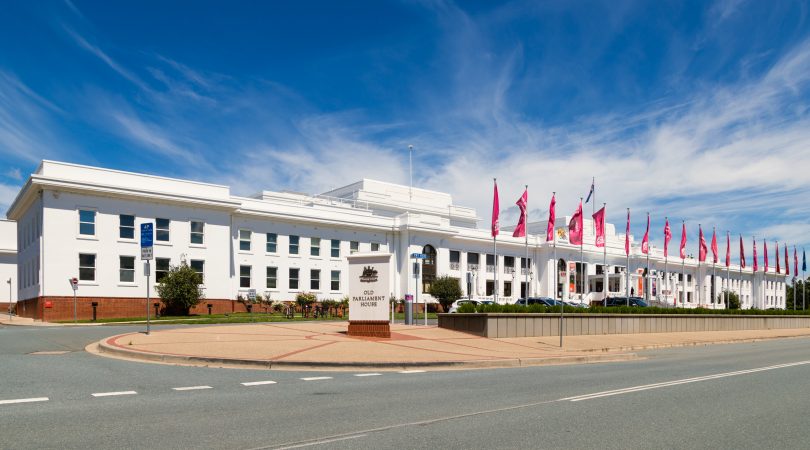
The Museum of Australian Democracy at Old Parliament House honours Australia’s world-class democracy. Photo: Michelle Kroll.
Museum of Australian Democracy director Daryl Karp says there’s a poignant photograph that hangs in one of its galleries at Old Parliament House.
It’s of a farmer casting his vote. Blue heeler nearby, nothing to be seen for miles – just a dust road, a scorched horizon, a rusted gate, a bridge table and the words ‘Polling Place’. It’s fitting and quintessentially Australian as we mark International Day of Democracy today (Wednesday, 15 September).
We are truly all in this together in a world-class democracy with a number of firsts.
Daryl says Australia boasts the first constitution to be written by and voted on by the people. We were the first country to embrace universal suffrage in 1902, giving white men and women the right to vote and stand for election.
Australia was the first nation to introduce compulsory voting in 1924, and one of only a handful of nations with peaceful transitions between governments. Our electoral processes are overseen by an independent Electoral Commission, which sets electoral boundaries and validates the outcomes.
So what happens to that proud, deep tradition when a pandemic hits? And how is Australia placed within a global context?
In addition to its exhibition spaces, the Museum of Australian Democracy has a strong focus on research and understanding about democracy and how it functions, including the Democracy 2025 research initiative.
Daryl says the COVID-19 pandemic has been challenging for all democracies around the world. For the 15th consecutive year, the number of democracies that declined worldwide outnumbered those that improved. During 2020, whether as a result of the COVID-19 pandemic, economic insecurity or conflict, nearly 75 per cent of the world’s population lost their democratic freedoms.
In Australia, COVID-19 has sped up flexible work practices, policy making and budgeting. It has resulted in streamlined governance processes through National Cabinet and taskforces, and renewed the focus on experts and scientists.
But Daryl says we’ve also willingly given up personal freedoms and civil liberties, accepting lockdowns, border closures, mask wearing and smartphone location tracking for the benefit of the larger community.
The Freedom House Index for 2021 places Australia near the top of democratic nations with a score of 97 out of a possible 100. We get full marks for our political rights – electoral processes, political participation and functioning of government – and slightly less for civil liberties.
We’re marked down for the lack of explicit protections for press freedom; issues in rule of law which recognises the independence of judiciary and due process, but questions equality of treatment; and under personal autonomy and individual rights it raises concerns about freedom of movement and equality of opportunity – all factors potentially at play during a pandemic.
These tensions between the ideals of freedom and equality are at the heart of Australia’s democracy and underpin a new permanent exhibition called ‘Democracy DNA’ which is due to open at the Museum of Australian Democracy early next year as a result of the research initiative.
Daryl believes Australia’s democracy is a unique amalgam of institutions and practice adapted from the UK, US and elsewhere.
“It’s something we’ve built,” she says. “It is not innate, nor simply inherited, nor is it fixed in time. It reflects our pragmatism, our mistrust of authority and our willingness to work together.”
When completed, ‘Democracy DNA’ will occupy the core, three central spaces at Old Parliament House, encouraging Australians to value our democracy, to understand how it works, to see ourselves as part of the story, and to consider how we engage with it, and what we expect from our representatives and government.
The Democracy 2025 project aims to find out, and to strengthen, democratic practice. Daryl says the Museum of Australian Democracy has amassed a great collection of resources, research papers and podcasts, and they show that Australians care strongly about our democracy.
Interestingly, the declining satisfaction trend was reversed in 2020 during the first response to COVID-19.
In collaboration with the Democratic Audit of the UK and universities, the Museum of Australian Democracy has established an independent audit of Australia’s democratic practice to provide ongoing intelligence, bridge the evidence gaps in democratic practice, and provide support for civic education.
“Democracy is not innate,” says Daryl. “We need to keep working at it. International Day of Democracy is the perfect time to think about what we want from our democracy, how we practice it, and how we might improve our practice.
“Education is a key part of this. Know how the system works, read critically and become informed on the issues. Engage with your political representative.
“Support your community and become a volunteer. Join a political party. Support our core institutions. And, of course, make your vote count.
“Becoming the culturally diverse, values-led democratic nation we are today is an ongoing journey. It’s one that needs all of us to be involved in, to care for and stand up.”












